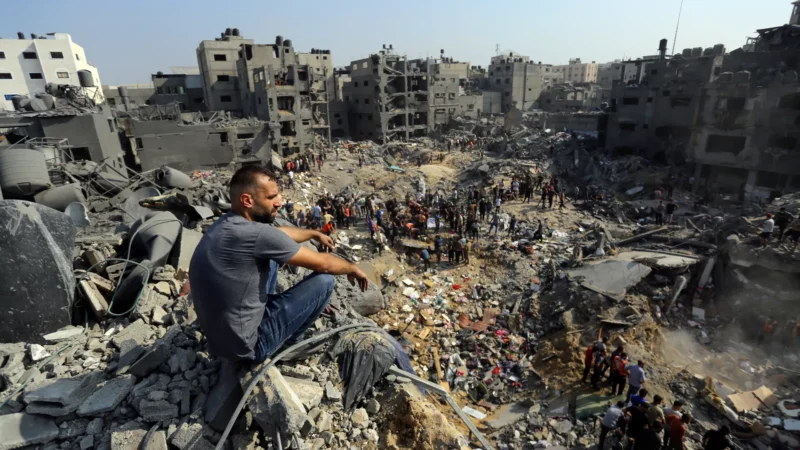War crimes and Russia’s invasion of Ukraine

After US President Joe Biden called Russian leader Vladimir Putin a ‘war criminal,’ Al Jazeera examines the legal implications of the term.
United States President Joe Biden has labelled his Russian counterpart, Vladimir Putin, a “war criminal” for the war in Ukraine, drawing sharp condemnation from the Kremlin which described the comments as “unacceptable and unforgivable”.
After Biden used the term on Wednesday, the White House press secretary Jen Psaki said the president was “speaking from his heart” after seeing “barbaric” violence in Ukraine, rather than making any formal declaration. The White House had been avoiding applying the designation to Putin, saying it requires investigation and an international determination.
We take a look at the meaning of the accusation and its meaning in the Russia-Ukraine war.
Who is a war criminal?
The term applies to anyone who violates a set of rules adopted by world leaders known as the law of armed conflict. The rules govern how countries behave in times of war.
Those rules have been modified and expanded over the past century, drawn from the Geneva Conventions in the aftermath of World War II and protocols added later.
The rules are aimed at protecting people not taking part in the fighting and those who can no longer fight, including civilians such as doctors and nurses, wounded troops and prisoners of war.
What crimes make someone a war criminal?
A war crime occurs when superfluous injury or unnecessary suffering is inflicted upon an enemy. This includes wilful killing as well as extensive destruction and appropriation of property not justified by military necessity.
Other war crimes include deliberately targeting civilians, using disproportionate force, using human shields and taking hostages.
The International Criminal Court also prosecutes crimes against humanity committed in the context of “a widespread or systematic attack directed against any civilian population”. These include murder, extermination, forcible transfer, torture, rape and sexual slavery.
Ukrainian defence minister Oleksii Reznikov has told European Union politicians that they should recognise Putin as a war criminal.
He cited examples such as what he said was a Russian air raid on a theatre on Wednesday where he said 1,200 women and children were sheltering. Russia denied carrying out an attack.
Could Putin end up on trial?
It is not clear. Russia does not recognise the jurisdiction of the International Criminal Court and would not send any suspects to the court’s headquarters in The Hague, Netherlands.
The US does not recognise the authority of the court, either. Putin could be tried in a country chosen by the United Nations or by the consortium of concerned nations. But getting him there would be difficult.
The most likely way that Putin could come into the picture as an alleged war criminal is through the widely recognised legal doctrine of command responsibility. If commanders order or even know or are in a position to know about crimes and did nothing to prevent them, they can be held legally responsible.
Have leaders been prosecuted in the past?
Yes. From the post-World War II tribunals in Nuremberg and Tokyo to more recent ad hoc tribunals, senior leaders have been prosecuted for their actions in countries including Bosnia, Cambodia and Rwanda.
Former Yugoslav leader Slobodan Milosevic was put on trial by a UN tribunal in The Hague for fomenting bloody conflicts as Yugoslavia crumbled in the early 1990s. He died in his cell before the court could reach a verdict.
His Bosnian Serb ally Radovan Karadzic and the Bosnian Serb military leader, General Ratko Mladic, were successfully prosecuted and are both now serving life sentences.
Liberia’s Charles Taylor was sentenced to 50 years after being convicted of sponsoring atrocities in neighbouring Sierra Leone. Chad’s former ruler Hissene Habre was the first former head of state to be convicted of crimes against humanity by an African court.






